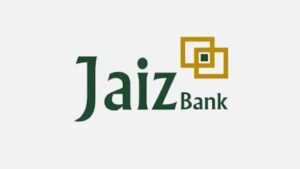
Wema Bank organises webinar to explore fuel subsidy removal on SMEs
Nigeria’s fuel subsidy removal has been a contentious issue that has attracted significant attention in recent years. The economic impacts of this policy shift have been discussed and analyzed by policymakers, economists, and businesses across the country.
Against this backdrop, Wema Bank, Nigeria’s most innovative bank and the pioneer of Africa’s first fully digital bank, ALAT, organised a webinar to explore the potential effects of fuel subsidy removal on small and medium enterprises (SMEs) in Nigeria.
The webinar, which took place on Thursday, April 27, 2023, brought together a panel of experts to provide insights into the challenges and opportunities that this policy change presents.
The webinar was anchored by renowned business journalist, Rotus Oddiri, and featured three distinguished panellists: Mr Momoh Jimah Oyarekhua, Chairman of OPAC Refineries; Mr Chika Mbonu, a seasoned macroeconomic and financial expert; and Dr Abdulrashid Yerima, President of the Nigerian Association of Small and Medium Enterprises (NASME).
The panellists, while providing an in-depth analysis of the economic impacts of fuel subsidy removal on the Nigerian economy, particularly on the cost of living for the citizens, and the ease of doing business for SMEs and the indigenous petroleum industry, opined that the fuel subsidy should be removed.
They agreed that while the removal of fuel subsidies may result in short-term pain for the Nigerian populace, it presents significant opportunities for SMEs to innovate and grow.
They however charged the government to put measures in place to cushion the effects of the fuel subsidy removal on growing businesses and vulnerable Nigerians. The panellists also advocated that alternative energy sources, such as renewable and clean energy, should be explored and embraced to reduce Nigeria’s reliance on oil revenues.
On his part, the Executive Director, of Retail and Digital, Wema Bank, Mr Tunde Mabawonku, emphasised that Wema Bank remains committed to providing SMEs in Nigeria with all the support that they need to navigate challenging economic times and empowering them with the knowledge, skills, and financing that they need to leverage the attendant opportunities.
The Divisional Head, of Retail Business, Mr. Dotun Ifebogun, stated that SMEs and individuals can obtain low-interest loans from Wema Bank that they can use to purchase clean energy solutions like solar panels, inverters, and batteries.
This move is part of the bank’s efforts to cushion the effects of high energy costs on SMEs in Nigeria. He urged SMEs to take advantage of this opportunity and contact the Wema Bank SME Banking team via [email protected] for more enquiries about this initiative.
The webinar was attended by policymakers, business leaders, academics, and industry experts. Overall, it provided a platform for dialogue and knowledge-sharing that could facilitate evidence-based decision-making and policy formulation in Nigeria’s energy sector.



